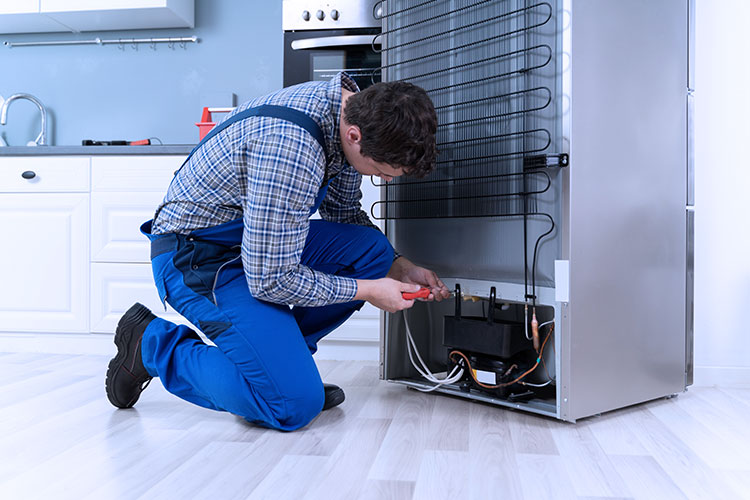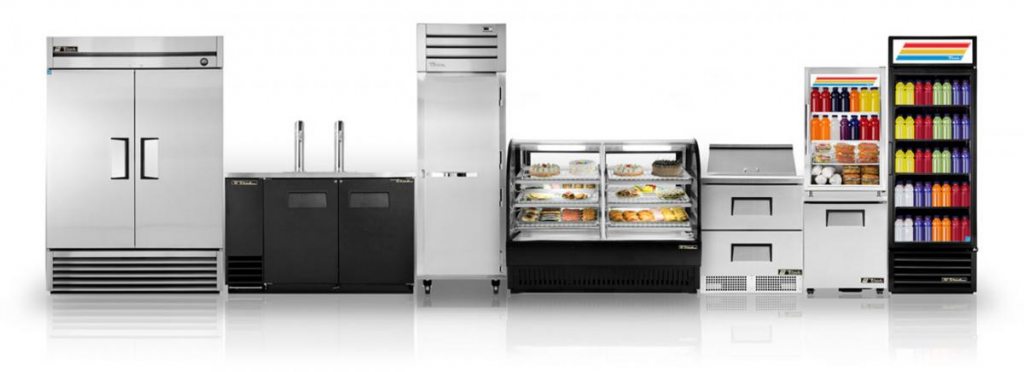Essential Tips for Effective Ref Repair Service to Extend Device Lifespan
When it comes to your fridge, proper repair work and maintenance are vital for long life. Understanding typical problems and knowing when to act can make all the distinction.
Comprehending Usual Fridge Issues
Fridges are crucial in maintaining your food fresh, however they can run into a variety of typical problems that disrupt their efficiency. If you discover food ruining quicker than common, inspect the thermostat settings or consider if the door seals are harmed. Recognizing these problems early can save you time and cash in repairs, guaranteeing your fridge runs efficiently and efficiently.
Routine Maintenance Practices
To keep your home appliances running efficiently, you need to remain on top of regular upkeep practices. Tidy the condenser coils, examine the door seals, and keep an eye on the temperature setups to assure peak performance. These straightforward tasks can save you money and time on repair services down the line.
Clean Condenser Coils Frequently
Cleansing your condenser coils regularly can greatly enhance your device's efficiency. Dirt and dirt build up on these coils over time, causing your appliance to work more difficult and consume more power. To maintain them clean, unplug your appliance and very carefully remove any safety covers.
Examine Door Seals
Three straightforward steps can aid you ensure your device's door seals remain in great problem. Examine the seals consistently for any fractures, rips, or signs of wear. These problems can lead to air leaks, influencing efficiency. Second, clean the seals making use of cozy, soapy water to eliminate any type of particles or crud. A tidy seal assures a tight fit and better performance. Lastly, execute a basic examination by shutting the door on a notepad. If you can quickly draw it out without resistance, the seal may require changing. By complying with these actions, you'll maintain your home appliance's efficiency and long life, saving you cash on energy costs and repair services over time.
Screen Temperature Settings
Consistently checking your home appliance's temperature settings is important for best performance and performance. Whether you're dealing with a refrigerator, fridge freezer, or stove, keeping an eye on these settings can avoid numerous concerns. For refrigerators, go for temperatures in between 35 ° F and 38 ° F; for fridges freezer, stay 0 ° F. If the temperatures are too high or reduced, your device may function harder, throwing away power and shortening its lifespan. Make use of a thermostat to check these setups frequently, especially after significant modifications, like relocating your home appliance or changing the thermostat. If you discover changes, readjust the settings as necessary and consult the customer handbook for advice. By staying aggressive regarding temperature monitoring, you'll assure your home appliances run smoothly and last longer.
Repairing Cooling Problems
When your fridge isn't cooling down correctly, it can bring about spoiled food and lost cash, so attending to the concern quickly is essential. Beginning by inspecting the temperature setups to confirm they go to the suggested levels, usually around 37 ° F for the refrigerator and 0 ° F for the fridge freezer. If the setups are correct, evaluate the door seals for any kind of gaps or damage; a defective seal can enable warm air to go into.
Following, analyze the vents inside the fridge and freezer. Verify they're not blocked by food products, as this can interrupt air flow. Pay attention for the compressor; if it's not running or making uncommon sounds, it might require focus. Check the condenser coils, generally situated at the my sources back or base of the system. Dirt and debris can build up, causing cooling issues. Tidy them with a vacuum or brush to maximize efficiency. If problems continue, it may be time to call a professional.
Fixing Water Leak and Ice Build-Up
If you're handling water leak or ice accumulation in your device, it's vital to determine the resource of the issue. By pinpointing where the water is coming from, you can avoid further issues and avoid costly repair work. Allow's discover some reliable methods to tackle these usual issues.
Determine Leak Resources
Just how can you successfully determine the sources of water leakage and ice accumulation in your home appliances? Beginning by evaluating the seals and gaskets on your fridge and fridge freezer doors. A worn or damaged seal can allow cozy air to enter, causing condensation and ice. Next off, examine the drain pan and drainage system for blockages or obstructions; a backed-up drainpipe can bring about water merging. Try to find any kind of loosened connections in the water supply line, which can develop leakages. Analyze the defrost drain for ice buildup, which might interfere with proper drain. By systematically inspecting these areas, you'll determine the source of the problem, allowing you to take the essential steps to repair it and prolong your device's life expectancy.
Avoid Ice Development
To stop ice development in your appliances, begin by verifying the temperature setups are suitable. If your fridge or freezer is as well cold, it can result in too much ice build-up. Check the door seals regularly; harmed seals can let cozy air in, triggering condensation and ice development.
Maintain the home appliance well-ventilated and stay clear of overcrowding, as this can block air flow - Dependable Refrigeration & Appliance Repair Service LG Appliance Repair. Likewise, regularly defrost your fridge freezer if it does not have an automatic defrost attribute.
If you see water leak, identify and fix any kind of blocked drainage openings, as they can contribute to ice accumulation. Tidy the coils and verify they're operating appropriately to preserve peak efficiency. Taking these steps will certainly assist expand your home appliance's lifespan and performance.
Attending To Noisy Fridge Seems
While it could seem disconcerting, a loud refrigerator usually signals small concerns instead than significant breakdowns. Common perpetrators include the compressor, fans, and water lines.
Following, look for loose products inside. Occasionally, containers or shelves can rattle, producing undesirable sound. Tighten up or rearrange them check over here to eliminate the sounds.
If you observe a site web clicking sound, it could be the defrost timer. This is normally safe however might show it requires assessment.
Ultimately, validate your refrigerator is level. An unbalanced home appliance can create vibrations and sound. Make use of a level to inspect, and readjust the feet if needed. Dealing with these problems immediately can assist keep your refrigerator's performance and extend its life-span.
When to Replace Components vs. Full Replacement

Consider the price of repair work versus the appliance's worth. Furthermore, if you see ongoing issues that keep reoccuring, it's an indication that your appliance has gotten to the end of its life.
Understanding When to Call an Expert
Exactly how can you inform when it's time to call in a specialist for home appliance repair service? If your device quits functioning entirely or frequently journeys circuit breakers, it's one more red flag.
You must additionally consider your very own convenience level with fixings. If you're not sure about diagnosing the issue or lack the right devices, it's ideal to connect for help. Remember, trying challenging fixings can bring about more damage or also safety and security threats.

Often Asked Questions
Just how Usually Should I Tidy the Fridge Coils?
You need to clean your fridge coils every six months. This helps keep efficiency and avoids getting too hot. If you observe excessive dirt or family pet hair, clean them more often to ensure your fridge runs efficiently.

Can I Use Vinegar for Cleaning My Fridge?
Yes, you can make use of vinegar to cleanse your refrigerator! It's an outstanding all-natural cleaner that gets rid of odors and spots. Appliance Repair Oro Valley Dependable Appliance Services. Simply blend it with water, apply it to surfaces, and clean down for a fresh, clean refrigerator
What Temperature level Should My Fridge Be Ready To?
You ought to set your refrigerator to 37 ° F(3 ° C) for optimal food conservation. This temperature level keeps your food fresh while avoiding spoilage, guaranteeing your grocery stores last longer and reducing waste. It's a simple modification you can make!
Does a Refrigerator Need to Be Leveled?
Yes, your refrigerator needs to be leveled. If it's uneven, it can influence cooling down efficiency and cause excess sound. Examine the leveling legs and readjust them to assure proper balance for suitable efficiency.
Exactly How Can I Minimize Refrigerator Power Usage?
To reduce your refrigerator's energy usage, keep it tidy and well-ventilated, check door seals for leakages, set the temperature in between 35-38 ° F, and stay clear of overloading it. These steps can considerably decrease your energy bills.